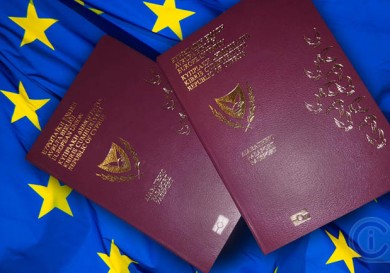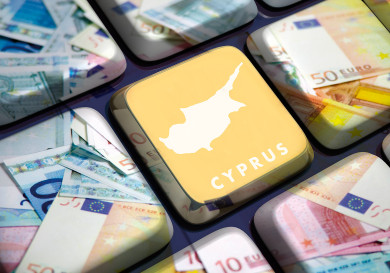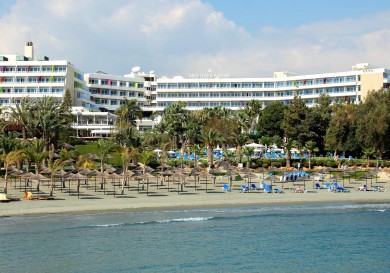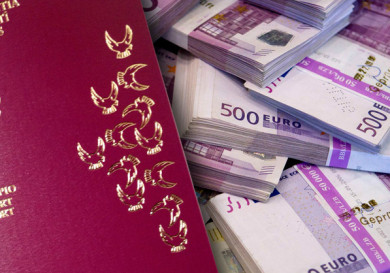On 18 November 2014, the Federal Law “On Amendments to Part One and Part Two of the Tax Code of the Russian Federation (taxation of the profits of controlled foreign companies and the income of foreign companies”, was passed by State Duma and approved by the Federation Council on 19 November 2014.
It was finally signed by the President of the Russian Federation on 24 November 2014. The law targets the deoffshorisation of the Russian Economy and comes into force as of 1st of January 2015. Particularly it provides for taxation of profits generated by foreign companies and controlled by Russian residents in the Russian Federation in accordance with the tax rates applicable in Russia (13% for individuals and 20% for entities).
Controlled Foreign CompaniesA controlled foreign company, named “CFC” for simplicity purposes, is a foreign company which satisfies the following conditions:
1. The company is not recognized as a tax resident in Russia.
2. The company’s controlling entities are companies and/or individuals recognized as tax residents in Russia.
3. CFC constitutes also a foreign structure without legal personality which is controlled by companies and/or individuals being tax residents in Russia.
Controlling entities include the following:
1. Individuals or legal entities whose participation interest in the foreign company is more than 25%.
2. Individuals or legal entities whose participation interest in the foreign company is more than 10% if the participation interest of all entities in the foreign company being Russian tax residents exceed 50% (individuals include spouse and minor children). *In the year 2015, the threshold is 50% for both descriptions above.
3. Company’s controlling entity can be recognized also an entity which does not correspond to the descriptions above but exercises control. Control is defined as the ability to exercise decisive influence on decisions regarding the distribution of profits of a CFC.
Exemption of CFC income from profits: The profits generated by a CFC exempt from tax in Russia if one of the below conditions are satisfied:
1. The CFC constitutes a non-profit organization.
2. The CFC is registered in a country which is member of the Eurasian Economic Union (the current members are Russia, Belarus, Armenia, Kazakhstan and Kyrgyzstan).
3. The CFC is tax resident in a country which has concluded Double Taxation Treaty with Russia, except those countries which are blacklisted due to not exchange of information, and the effective tax rate of the CFC accounts for at least 75% of the weighted average tax rate that would apply in Russia if the CFC would have been tax resident in Russia.
4. The CFC is tax resident in a country which has concluded Double Taxation Treaty with Russia, except those countries which are blacklisted due to not exchange of information, and at least 80% of its total income constitutes active income in proportion to the passive income. Passive income includes dividends, interest, royalties, gains from disposal of securities, gain from disposal of immovable properties, rental income from letting immovable properties and income from provision of services like consultancy, legal, accounting and audit, advertising, marketing, IT, research and development, HR services e.t.c.)
5. The CFC is a bank or insurance company having license in its country of tax resident and is a resident in a country which has concluded double taxation treaty with Russia and exchanges information.
6. Foreign structures without legal personality as long as they are unable to distribute profits to its participants or beneficiaries.
7. Issuer of Eurobonds provided that the share of income derived from such activity is no less than 90% of the issuer’s income.
Notification of participation in foreign companies and CFCs: The Russian tax residents should notify the Tax authorities for their participations in foreign companies and CFCs (direct and/or indirect) as follows:
1. Participations in foreign companies exceeding 10% should be notified to the Russian tax authorities by 1st of April 2015. This relates to foreign companies established prior 1st of January 2015.
Foreign companies established after 1st of January 2015 should be notified to the Russian tax authorities within 1 month from the date of participation in the share capital of the foreign company or changes in such participation.
The details of notification for foreign companies should include the name, date of participation, registration number, percentage of participation (direct and indirect) and date of termination of participation.
2. Participations in CFC should be notified by 20th of March following the year in which the CFC profits should be included in the tax base of the Russian controlling entity (individual and/or entity).
The CFC profits of the year 2015 should be included in the tax base of the Russian controlling entity in the fiscal year 2016 meaning that the Russian tax authorities should be notified by 20th of March 2017.
The details of notification for CFCs include the name and registration number of the CFC, the reporting period, the last date of the reporting period, the date of closure of Financial Statements of the CFC and the date of end of the fiscal year in which the CFC is established, the date of the auditor’s report, the share of participation in the CFC, the reason for classifying the foreign company as CFC and the reason for exempting the foreign company’s profits from imposition of Russian tax.
Recording the profits of a CFC for taxation in Russia:
As mentioned above, the first profits of a CFC resulting in the year 2015 should be included in the tax base of the Russian controlling entity (individual and/or entity) in the year 2016 and notified to the Russian tax authorities by 20th of March 2017. The profits relate to the undistributed profits following deduction of dividends distributed in the following year of the reporting period of the CFC (2016) and following deduction of dividends distributed during the same fiscal year (2015).
The undistributed profits are then included in the tax base of the Russian controlling entity in accordance with the share of participation of the Russian controlling entity. This share of profit is then subject to tax in Russia in accordance with the Russian tax rates (13% for individuals and 20% for legal entities).
The profits of a CFC are taken into account when determining the tax base of the Russian controlling entity if they exceed Rub 10 million. For the year 2015 the profits are taken into account if they exceed Rub 50 million and for the year 2016 if they exceed Rub 30 million. The date of receipt of the undistributed profits of the CFC is deemed to be 31st of December of the year following the reporting year of the CFC (for 2015 this is deemed to be 31st of December 2016).
It should be noted that dividends distributed by a Cypriot Company to a Russian Company exempts from taxation in Russia provided that the normal holding conditions are satisfied (more than 50% participation and the shares are held for at least one year, 9% tax if the conditions are not satisfied). This is due to the fact that following ratification of the new Double Taxation Treaty between Cyprus and Russia, Cyprus was removed from the black list. It is also noted that dividends distributed by a Cyprus Company to its foreign shareholders exempt from withholding tax in Cyprus.
The Russian controlling entity should submit to the tax authorities, together with his tax return, the following documents regarding CFC:
1. Its Financial Statements for the relevant reporting period.
2. Auditors report on the Financial Statements.
3. Primary documents confirming the income of the CFC in the case of absence of Financial Statements.
The documents stated above should be translated in Russian language. Penalties for failure to comply with the law: The penalties imposed in accordance with the law are as follows:
1. Failure by the Russian controlling entity to notify participation in foreign companies results in a fine of Rub 50.000 for each foreign company.
2. Failure by the Russian controlling entity to notify participation in a CFC results in a fine of Rub 100.000 for each CFC.
3. Failure to provide the necessary financial documentation of a CFC results in a fine of Rub 100.000 for each CFC.
4. Non-payment or partial payment by a Russian controlling entity of the tax which should have been imposed on the profits of a CFC due to non-inclusion of the share of profits of the CFC results in a fine of 20% of the amount of the unpaid tax but no less than Rub 100.000.
Computation of CFC profits:
The profits (or losses) of a CFC, situated in a Country which has concluded Double Taxation Treaty with Russia and its Financial Statements are subject to mandatory audit as per the law of this Country, is identified through its Financial Statements prior imposition of tax in accordance with the law of the Country of tax resident of the CFC. If the CFC is situated in a Country which has not concluded DTT with Russia and preparation of Financial Statements is not obligatory then the profits of the CFC are determined in accordance with the Russian tax law. The profits of a CFC expressed in foreign currency are translated in Rubles by using the average exchange rate of the reporting period as set by the Central Bank of the Russian Federation. In addition certain adjustments need to be taken place:
1. Gains or losses resulting from fair value adjustments on securities and derivatives are not taken into account.
2. If the passive income constitutes more than 80% of the total income of the CFC then the whole profits of the CFC are taxable in Russia.
3. CFC tax losses are carried forward for future utilization without restrictions and deducted from CFCs first future taxable profits.
4. CFC tax losses incurred prior 1st of January 2015 can be carried forward for future utilization from CFC taxable profits in an amount not exceeding the amount of tax losses related to the three financial years prior 1st of January 2015.
5. CFC tax losses of a fiscal year cannot be carried forward to future periods if the Russian controlling entity failed to submit notification for this particular fiscal year.
6. Controlled transactions between the CFC and the Russian controlling entity should be performed in accordance with the principles of the arm’s length. If his does not apply then the profit of the CFC will be adjusted accordingly.
7. The amount of Russian tax imposed on the profits of the CFC is reduced with the tax imposed in the Country of the CFC as well as with the tax imposed in Russia on the Permanent Establishment (if any) of the CFC in Russia.
8. Withholding tax imposed on dividends distributed by the CFC is deducted from the tax imposed in Russia on such dividends received by the Russian tax resident. Documentary evidence confirming withholding tax imposed overseas should be provided to the Russian tax authorities.
Companies recognized as Russian tax resident:
In addition to the CFC rules, as part of the deoffshorisation Russia has introduced tax residency rules which include as Russian tax residents those foreign companies whose actual place of management is situated in Russia. The following conditions apply for such taxresidency:
1. The majority of the meetings of the board of directors are held in the territory of Russia.
2. The executive body of the foreign company regularly conducts the work of the company from Russia.
3. Top management functions are exercised by key principal officials from Russia.
If none of the above conditions are satisfied, then a foreign company may still be recognized as Russian tax resident if one of the below mentioned conditions is satisfied:
1. The accounting or management accounts are prepared in Russia.
2. The Company’s record keeping is exercised from Russia.
3. The operational HR management is conducted from Russia.
A foreign company recognized as Russian tax resident is subject to taxation in Russia in accordance with its profits generated on a worldwide basis and should comply with the Russian tax legislation. Also, a foreign company which is a tax resident in a Country which has concluded DTT with Russia and conducts activities through a PE situated in Russia has the right to elect to become a Russian tax resident. In such a case, it ceases to be treated as CFC.
Taxation of Capital Gains from the indirect disposal of Russian Real Estate:
The law states that gains derived from disposal of shares in foreign companies whose assets, directly or indirectly, constitute by more than 50% from its value from immovable property situated in Russia, such gains are subject to tax rate in Russia at the rate of 20%.
In addition, foreign companies (foreign structures without legal personality) owning immovable property situated in Russia are required to disclose, together with the property tax returns, information regarding their members (shareholders, founders, beneficiaries, trustees e.t.c.). The disclosure of indirect participation (if any) of an individual or public companies is required provided their share in he foreign entity exceeds 5%.
The penalty for non disclosure of the above information amounts to 100% of the property tax due with respect to the given immovable property owned by a foreign company. Beneficial Ownership of Passive Income:
The law provides for a “look-through” approach in order to limit the ability of Russian beneficial owners receiving indirectly passive income to take advantage of Double Taxation Treaties so as to be benefited from reduced withholding tax rates or tax exemption from such income.
A person with limited powers of disposing of passive income and is acting as an intermediary in favor of another person, not taking any risks apart paying the income then is not regarded as beneficial owner. If the tax agent knows that at the time of payment of passive income (dividends, interest and royalties) the beneficial owner is not the direct recipient then it can apply the provisions of the DTT. If the agent believes that the income will be received directly or indirectly by a Russian tax resident then the agent may refuse to withhold the tax rate and inform the Russian tax authorities in order to include the income in the tax base of the Russian tax resident.
Conclusion:
The deoffshorisation rules apply since 1st of January 2015 and the Russian tax residents should ensure that they comply with the law. They should review their existing structures and determine which foreign companies will be classified as foreign companies and which as CFCs. They should also analyse the type of income generated by a CFC (passive and active) and calculate the effective tax rate for every CFC. They should also review the ability of accounting system to identify CFCs.
For any additional information, do not hesitate to contact our office for more information.
Antonis Chrysanthou FCCA
Olesya Chrysanthou ACCA
16 January 2015 CPV Group (CPV Audit and CPV Corporate)












